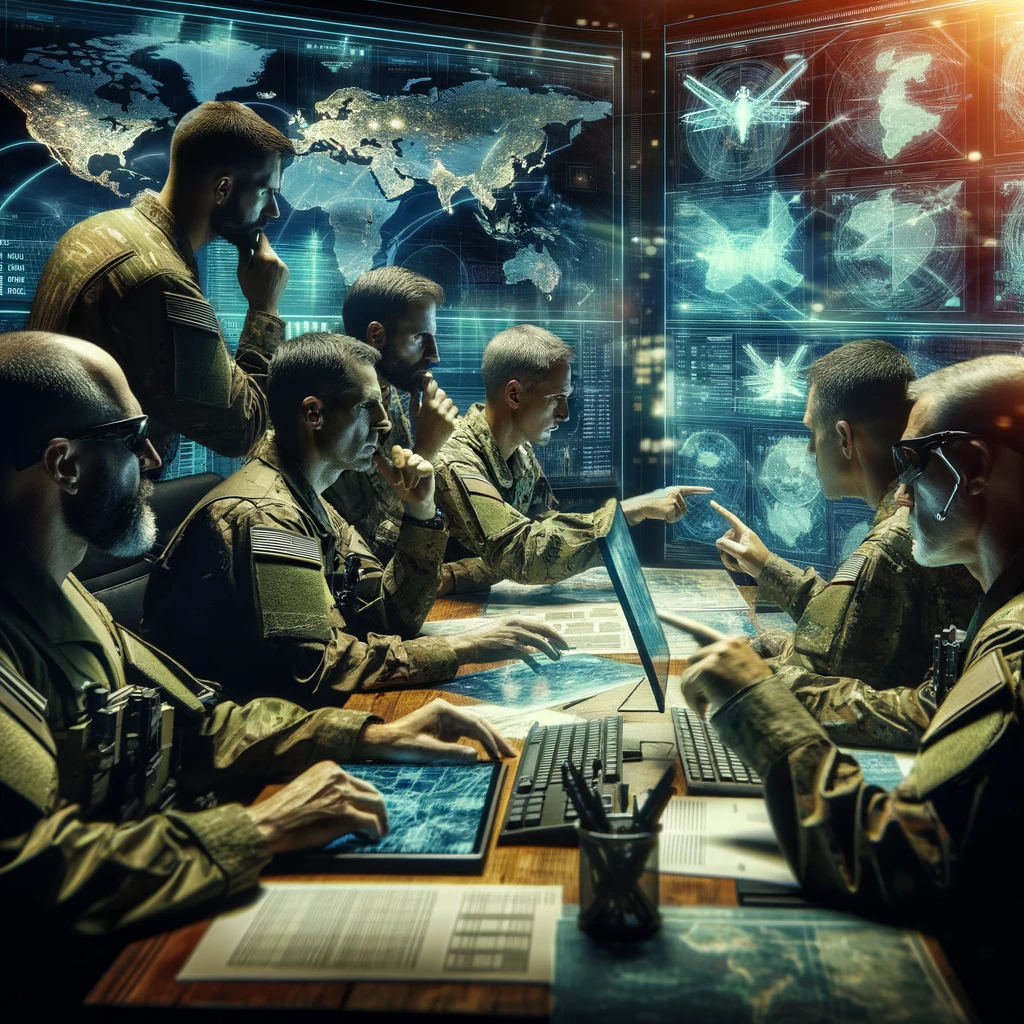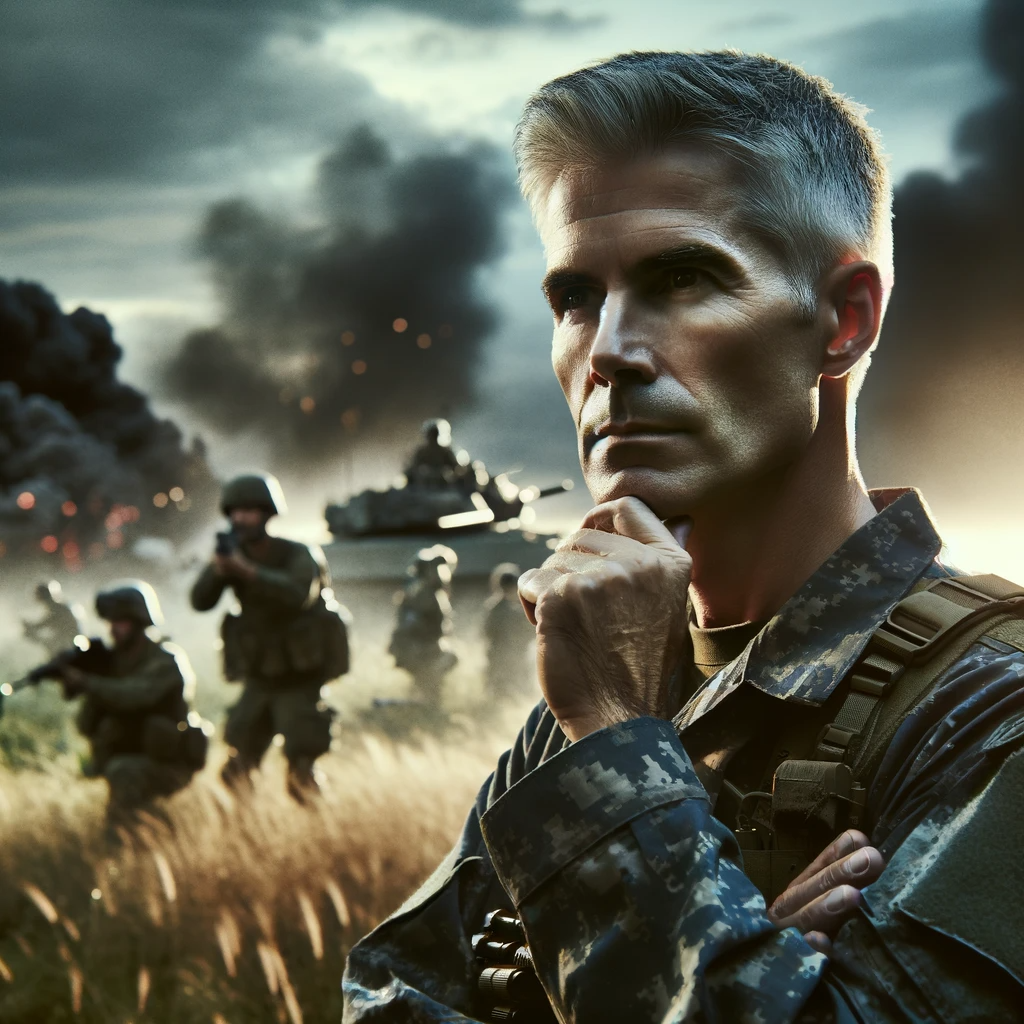Leadership Under Fire: Psychological Traits of Effective Military Commanders
Leadership Under Fire: Psychological Traits of Effective Military Commanders
Leadership in military contexts requires a unique combination of psychological traits that enable commanders to make rapid, high-stakes decisions, maintain the morale of their troops, and strategize effectively under the pressure of combat. The crucible of warfare tests these leaders in ways few other professions do, demanding not just tactical and strategic intelligence but also a profound psychological resilience and the ability to inspire and lead by example. This article delves into the core psychological traits that distinguish effective military commanders, drawing on historical examples and contemporary research to provide a comprehensive analysis.
Decisive Action Under Pressure

One of the hallmark traits of successful military leaders is their capacity for decisive action under extreme pressure. The fog of war, with its inherent chaos and uncertainty, necessitates leaders who can quickly assess situations, make informed decisions, and adapt as circumstances change. This decisiveness is not reckless impulsivity but rather a calibrated response to rapidly evolving situations. It is underpinned by a deep well of knowledge and experience, allowing commanders to sift through information, prioritize tasks, and project the implications of their decisions.
Historical examples abound of leaders whose decisiveness under fire altered the course of battles and, by extension, history itself. For instance, General Dwight D. Eisenhower’s decision to proceed with the D-Day invasion despite adverse weather conditions demonstrated an understanding of the strategic window available and a willingness to accept calculated risks. Eisenhower’s leadership exemplifies how effective commanders harness their knowledge, intuition, and judgment to make decisions that can lead to victory even in the face of uncertainty and adversity.
Emotional Intelligence and Empathy

Effective military commanders possess a high degree of emotional intelligence, which enables them to understand, empathize with, and effectively lead their subordinates. This trait involves recognizing one’s own emotions and those of others, managing emotions in oneself and in relationships, and using emotional information to guide thinking and behavior. Emotional intelligence in military leadership facilitates the building of strong, cohesive units where soldiers feel valued, understood, and motivated.
General George S. Patton, known for his fierce demeanor and demanding standards, also demonstrated an understanding of the importance of connecting with his troops on a personal level. Patton’s ability to inspire and motivate stemmed from his capacity to appeal to the pride and fighting spirit of his soldiers, showing an innate grasp of the emotional currents running through his forces. The balance between demanding excellence and understanding the emotional needs of soldiers is a critical aspect of leadership that can determine the effectiveness of a military unit.
Strategic Vision and Adaptability

Another critical trait of effective military commanders is a strategic vision coupled with adaptability. A strategic vision allows leaders to set long-term goals and devise plans to achieve them, considering both the broader geopolitical landscape and the specifics of the military engagements they are involved in. Meanwhile, adaptability is crucial for adjusting these plans in response to unexpected challenges and opportunities. The ability to pivot, innovate, and exploit the fluid dynamics of warfare often separates the successful commanders from those who fail to achieve their objectives.
The career of Admiral Horatio Nelson offers a compelling study in strategic vision and adaptability. Nelson’s leadership during the Battle of Trafalgar showcased not only his innovative tactics, which broke from the conventional naval warfare of his time, but also his ability to adapt his strategy in the heat of battle. Nelson’s willingness to embrace unconventional tactics and his ability to inspire his fleet to execute these plans effectively underscore the importance of strategic vision and adaptability in military leadership.
Resilience and Mental Toughness

Resilience and mental toughness are indispensable traits for military commanders, enabling them to withstand the psychological rigors of combat and leadership. These traits involve maintaining focus, determination, and a positive outlook in the face of setbacks, stress, and adversity. Resilient leaders are able to recover from failures, learn from their experiences, and maintain their commitment to their mission and their troops.
General Douglas MacArthur’s leadership during World War II and the Korean War exemplifies resilience and mental toughness. MacArthur faced numerous challenges, including strategic setbacks and political controversies, yet he remained steadfast in his commitment to his objectives. His ability to persevere, adapt, and maintain his strategic vision under adverse conditions demonstrates the critical role of resilience and mental toughness in military leadership.
Integrity and Ethical Leadership
Integrity and ethical leadership are fundamental to the moral authority of military commanders. Leaders who exemplify honesty, accountability, and a commitment to ethical principles engender trust and respect among their subordinates, peers, and the broader society. Ethical leadership in the military context also involves making difficult decisions that balance the demands of warfare with the imperative to protect non-combatants and adhere to international laws and norms.
General Colin Powell’s leadership philosophy, which emphasized the importance of integrity and ethical decision-making, highlights the role of these traits in effective military command. Powell’s adherence to principles, even in the complex and morally challenging environment of military operations, serves as a model for how commanders can lead with honor and uphold the highest standards of conduct.
FAQ
- What makes a military commander effective under fire? Decisiveness, emotional intelligence, strategic vision, adaptability, resilience, and integrity are key traits that enable military commanders to lead effectively under fire.
- How does emotional intelligence impact military leadership? Emotional intelligence allows commanders to understand and empathize with their troops, building cohesive units and motivating soldiers to perform at their best.
- Why is strategic vision important for military commanders? A strategic vision enables commanders to set long-term objectives and devise comprehensive plans, while adaptability allows them to adjust these plans in response to changing conditions on the battlefield.
- What role does resilience play in military leadership? Resilience and mental toughness help commanders withstand the psychological stresses of combat, recover from setbacks, and maintain their focus and determination.
- How do integrity and ethical leadership influence military command? Integrity and ethical leadership foster trust and respect, ensuring that commanders lead by example and make decisions that adhere to moral principles and international norms.
For More Information:
- Center for Military Leadership Studies: A repository of research and analysis on military leadership principles and practices.
- National Defense University Press: Offers publications on military strategy, leadership, and ethics.
- Military Leadership Review: An academic journal featuring articles on leadership within military contexts.
- International Journal of Leadership Studies: Provides insights on leadership theories and practices, including military leadership.
- U.S. Army War College Library: A valuable resource for publications and documents on historical and contemporary military leadership.
Dr. Jerry D. Smith Jr. is a clinical psychologist and empathic expert specializing in human empowerment and leadership.
More from Dr. Jerry Don Smith Jr. and Operational & Defense Psychology Review






